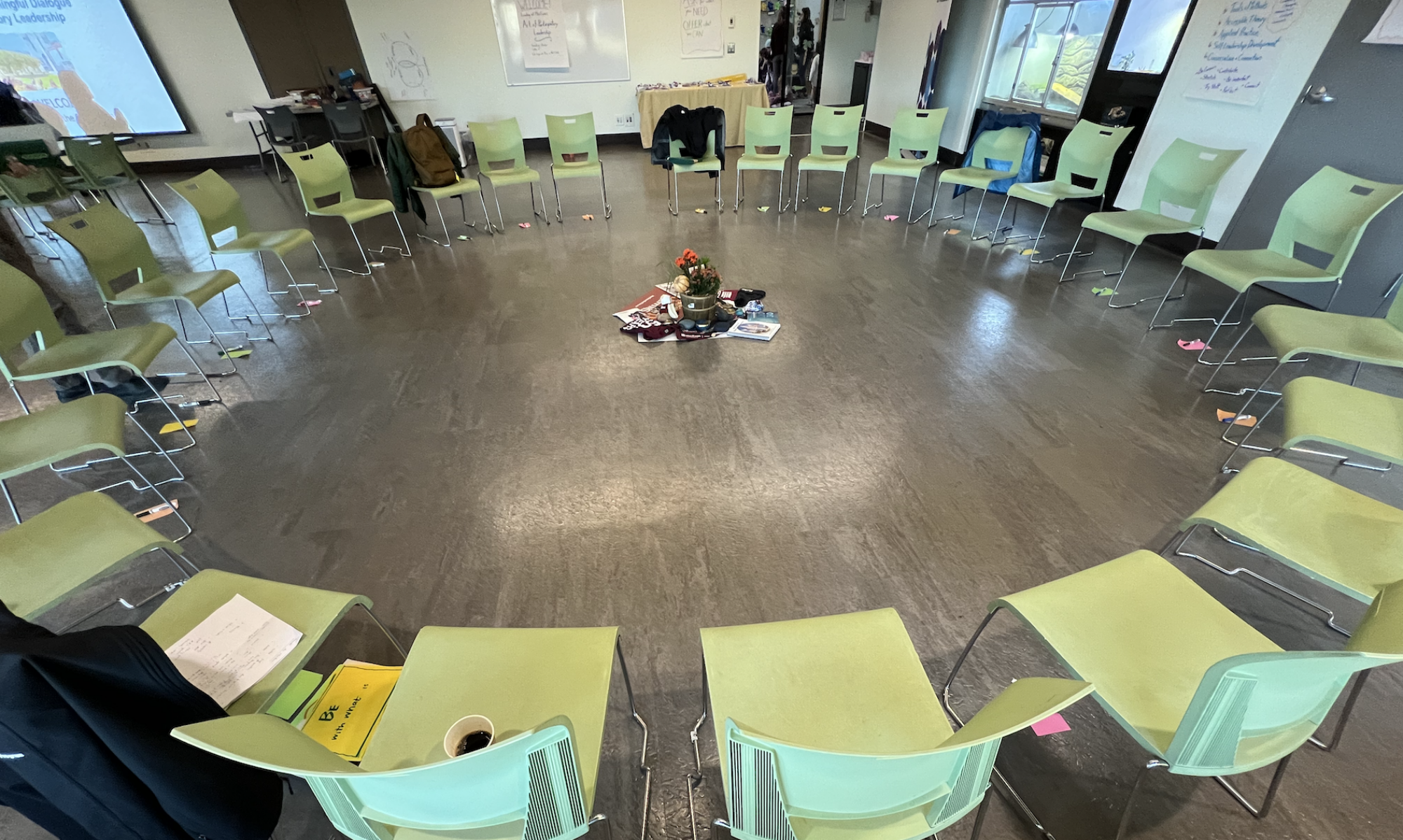While hosting an open-enrollment Art of Hosting at Bowen Island last month, one of my own learning edge questions that arrived was about the art in the art of hosting. It is not a new question. Many of us have been in it for a while. But it was coming stronger for me. Perhaps because of our hosting team — Chris Corrigan, Caitlin Frost, Monica Nissen, David Stevensen. Perhaps inspired by an evening conversation I was in with four participants as one commented, “OK, so it isn’t about the methods. What is it about you guys as hosts?” It was asked in friendship and with appreciation. And it was asked with invitation to mine the tacit parts of hosting, the art.
Chris and I hosted a session in a knowledge cafe the next morning. It was straight-up inquiry. About 20 joined this session. With gratitude for all that participated, here is a bit of what surfaced for me:
– seeing things that others don’t see, AND, trusting that seeing
I’m thinking now of an recent hosting with colleague Nancy Egan and the New York City Department of Education. We had hosted a cafe that really moved people into the beginning of solutions. It was a bit early in the process. It felt like we could go, and needed to go, further into the core need and purpose of their education reform work. And that there was more connecting in relationship that could happen around that shared sense of need. We saw a need to diverge further. The client was concerned, wanting to make sure that those who commited to come would feel the time was “well spent.” We chose to host some triad conversations about what students would tell us about what they most wanted. We harvested these to the whole group. And we then extracted principles for collaboration. Seeing that need to diverge sparked the heartfulness of that group. We trusted that read. It served well.
– being in a daily practice of staying curious
I think of curiosity as a core competency here. It supports another core competency of organizational learning. In the context that we now live in — rapid change, infrastructural change, increased awareness of systemic complexity, urgency — at all levels we need to learn. Individuals, teams, communities. Curiosity is what invites the learning. It is what shifts the “yah but” to “what if?” The daily practice for me includes some grounding principles. There is always more going on than it seems. This alone is strong because of the relational nature of work. The dynamic interaction requires us to retrain to look for conditions and patterns. Much to be curious about with this.
– laugh
I am grateful to Dustin Rivers, a paraticipant, who taught us laughing yoga. The simple space to laugh with each other. And I am grateful to him for naming laughter as a fundamental metric. Several times he commented on the point at which he began to laugh again. I don’t know all of what makes laughter important. It just seems to be a fundamentally enjoyable part of relationships (and the paradox of laughter amidst very serious things) that opens us to new relations with each other. That includes new relations of learning.
– leading from the field
I think this one is related to seeing what others don’t. It is something about showing up and because of who we are, resonating out with that.



